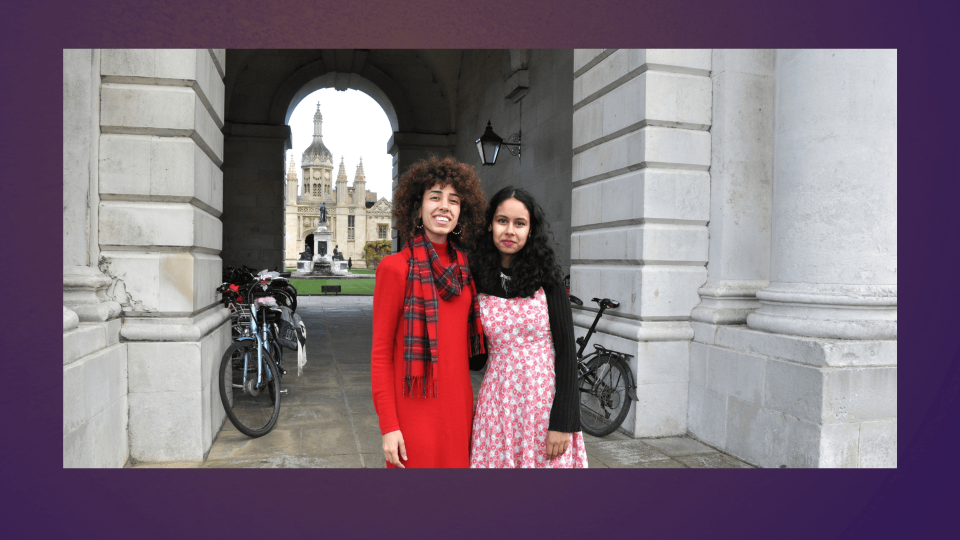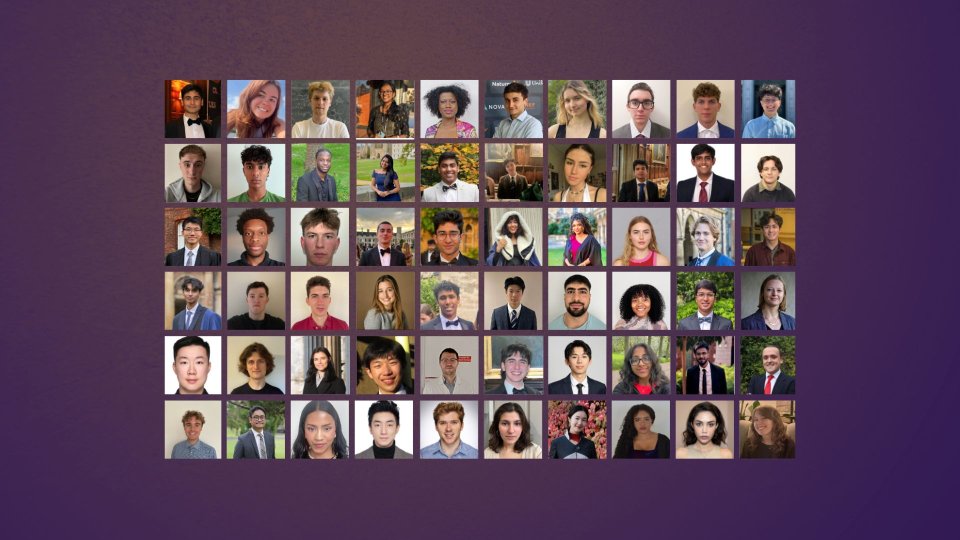A personal invitation to study Theology by Revd Dr Stephen Cherry, Director of Studies in Theology, Religion, and Philosophy of Religion at King's College, Cambridge.
This page is based on God Curious: Asking Eternal Questions, a new book that I have written. I hope that it will be especially helpful to for people who are considering what to read at University, but I hope that many more people might be interested because there is much more to the study of theology than doing it as a degree subject. After all, the study of theology is not only much older than any university, it is probably as old as language itself – or at least as old as the capacity to ask questions about the meaning and purpose of life, and to wonder about what might be just beyond the realms of our ordinary experience and common sense.
If you are interested in questions like, ‘why are we here?’, ‘can we say anything meaningful about God – and if so, what, and how?’, ‘to what extent are religions similar or different?’, ‘what is the importance of scriptures in different religions (or just in my religion) and how are they best interpreted?’, ‘what has the impact of the great religions been on the development of culture across the world?’, ‘what do religious teachers or traditions have to teach us about love, justice or hope?’, then you might well enjoy theology. And for that reason, I invite you to read on.
Why study Theology? The short answer is because it is fascinating, fun and important.
Fascinating
We have already considered the range of questions that theologians consider, but its worth noting that today the study of theology almost always involves encounters between people who see the world very differently, have quite different religious practices and sometimes very different values. It is certainly not limited to people who believe in God, or even to those who think that being religious or spiritual is a sensible option for a human being. On the other hand if you study theology you are likely to come across, either in person or through their writing, people of deep faith who take their own religion very seriously both as a practitioner and as a thinker.
Theology is fascinating merely at the human level. It’s extraordinary that people can hold such different convictions and yet get on really well. And at the same time it’s very odd that people can hold very similar views and yet get into serious and bloody conflict over what seem to be rather minor differences to anyone outside their tradition.
One of the things that I have found interesting as I have recently re-read some of the great theologians of the Reformation era is just how extremely rude they are to each other, and how confident they are that they themselves are right. What Martin Luther had to say to Desiderius Erasmus would make anyone blush! It is also extraordinary that people with religious convictions have put such huge amounts of energy into their controversies. It is said of Augustine (the one who wrote Confessions) that he worked hard all day as a bishop and then worked all night as a theologian, writing books and commentaries and letters. Sometimes he was in reflective mode, wondering about who he was and what his life meant, sometimes he was in dispute with those who understood human nature quite differently, sometimes he was sketching out (I mean writing thousands of words about) his understanding of how society should be organized.
One of the things that people easily forget when they think about Theology is that people have often been prepared to die for it, that theological opinions have often been a matter of life and death. There are different versions of this. Some people will die for their faith because they believe that martyrdom is a fast track to paradise. But this isn’t the driver of most martyrdom down the ages. The martyrs have been those who have been committed to their faith, their understanding of the truth, in a way that was more important to them than their own life. True martyrs don’t want to die; but they are not prepared to lie their way out of situation when matters of ultimate truth are at stake.
Along with the idea of martyrs goes the idea of heretics. Although people don’t often make this point, it almost goes without saying that all heretics are theologians. They are people who have thought things through for themselves and come to conclusions that religious authorities have not found acceptable. A heretic is not someone who suddenly has a dodgy idea in their head. A heretic is someone who has taken a lot of trouble to come to their unpopular view and is prepared to take the flak for maintaining their position. The study of theology involves the study of heresy and heretics. And thank goodness for that, because without the heretics theology could be a terribly dull and conformist subject.
Heretics are often people with great insights and ideas as well as strong-mindedness and courage who just happened to lose the dispute at the time. Quite how that dispute looks with several hundred years of hindsight is one of the questions a theologian might ask. And any theologian who has a lively and independent cast of mind might end up a heretic today. The penalty for being a heretic is no longer to be burnt at the stake, any more than the penalty for being orthodox in your faith might lead to being fed to the lions. But theology is a subject where the stakes are high. This is part of what makes it a fascinating and compelling, not to say, once you get started, a compulsive subject. Indeed one of the great things about theology is that you never have to stop, because there is always another theological question to be asked and, possibly, answered.
Fun
The boundaries between what is religious and what is non-religious are flexible and porous, and so the study of theology doesn’t only draw on overtly religious material. Naturally theologians study scriptures and the works of other theologians. They also try to understand religious behaviour and organization.
"In today's world you are as likely to find theological questions addressed in films as you are anywhere else."
Theology is fun partly because it is one of the most interdisciplinary of subjects. To study it properly you have to engage with philosophy, history, anthropology, psychology and sociology. But that’s not all. Recognizing that people express religious, spiritual and theological ideas indirectly, theology very often involves the study of literature – whether is great novels or poetry or plays. Theologians also try to progress their understanding by looking at historic works of art. The pictures, buildings and music of religious communities can teach us a great deal about their beliefs and values, and in today’s world you are as likely to find theological questions addressed in films as you are anywhere else. So yes, theologians go to the movies and try to ‘read’ or interpret them in a theological way.
Words are important in religion and theology, but they are rarely the last word – because one of the things theologians are interested in is what people have to say about matters that can’t be adequately expressed in words. Indeed theologians are very interested in the limits of knowledge, just as they are interested in the limits of life, and what may be beyond knowledge and experience. Theology is the subject for you if you are interested in the ‘something more’ to life that no one can see. This is often referred to as the ‘transcendent’. Part of the fun of theology is that we can never be one hundred percent sure that we, or anyone else, is right about the transcendent, and so there is always room for another point of view. And yet no theologian is content to shrug their shoulders and say ‘nobody knows, so it’s not worth thinking about’. Rather a theologian will say that although no one knows, and the one thing certain is that no one can be certain, yet it is important to apply our minds to this.
One of the observations that I have made in life, not least in my ministry as a pastor, is that many people will be happy letting life go by, enjoying the good times and not asking many questions until something goes seriously wrong for them or someone they love. It’s for this reason that theology is often born out of suffering or catastrophe. Good, interesting, lively compelling theology doesn’t just grow on happy trees in jolly gardens. It tends to spring up from the ruins of some kind of lost hope or shattered vision, or if not that then some genuine puzzlement and dissatisfaction with existing answers. Theology never grows out of smugness, but comes out of perplexity and the need to find answers to questions that keep us awake at night or which occur to us when life (or death) stops us in our tracks.
Maybe that idea doesn’t quite belong under the heading of theology as fun, but there is in fact a kind of fun to be had in looking difficulty and despair in the face and letting that reality challenge complacent and easy believing. And there is a huge amount of fun to be had (though fun is too light a word now – joy would be better) in seeing hope rise again in the once despairing, in seeing the liberation of the oppressed, the forgiveness of those who have made great mistakes and the reconciliation of sworn enemies. No theologian would claim that the study of theology will make these things happen, but for theology to be complete it must be interested in the upside of life, even if it often begins in the downside.
To study theology is to have permission to think about things that are above and beyond our normal capacities. If you like everything cut and dried then theology will be no fun for you at all. This is one reason why some people of intense and clear faith find theology so difficult. But if you think the idea of starting on an intellectual adventure that has no limits and could last for the rest of your life – then theology is your kind of fun.
Important
Thirdly, theology is important. There was a time not very long ago when it was common for people to think that religion would die out. ‘Imagine there’s no heaven’ wrote John Lennon, ‘and no religion too’. This line of thinking didn’t start in the 1960s with the Beatles however, but in the nineteenth century.
In 1882 the philosopher Friedrich Nietzsche declared that ‘God is dead’ (adding that ‘we have killed him’). Previously, in 1867, one of the big name English literati of the Victorian era, Matthew Arnold, wrote a poem called ‘Dover Beach’ in which he referred to ‘the long, withdrawing roar’ of ‘the sea of faith’. Arnold was connected with the strong-minded and eminent Victorian Leslie Stephen who, we might note in passing, was from an extremely interesting family. His father and grandfather were leading evangelical clergy, very much involved in social campaigns such as anti-slavery. They were members of the so-called Clapham Sect alongside social reformers like William Wilberforce and John Newton (the former slave-ship captain who wrote the hymn, ‘Amazing Grace’) and missionaries like Henry and John Venn.
As the twentieth century dawned the advance of atheism continued. Thomas Hardy wrote a poem called ‘God’s Funeral’ between 1908 and 1910 and the First World War put an end to any easy idea that ‘God's in His heaven— / All's right with the world’ (Robert Browning, Pippa Passes). This was the era in which Leslie Stephen’s daughters, Virginia Woolf and Vanessa Bell, found themselves at the heart of an elite London group that was as different as it is possible to be to the Clapham Sect of their grandparents. This Bloomsbury Group was famous for its artistic and progressive values, and a very relaxed approach to sexuality and its expression. After the First World War religious authority figures were no longer trusted as they had been. It became increasingly common for people to think that what was taught or thought about God was essentially what people made up about God. This approach was given a huge boost by the work of Sigmund Freud who developed the idea that the human mind was dominated by thought processes of which we were not aware, and that ‘God’ was essentially an idea conjured up in the recesses of our ‘unconscious’ to help us feel better and cope with life’s more difficult challenges.
But the end of faith wasn’t only prophesied by philosophers, poets and psychologists. Sociologists came up with the idea of ‘secularization’ almost as soon as their subject was invented. Studying the number of people who attended church from year to year they soon saw that the numbers were declining and, plotting graphs of the decline, they proved to their own satisfaction that church-going should be over and done with by the early years of this century. The sociologists were both right and wrong. Church going has declined in many places, especially in the north of England, but there are also places where it has increased, and the actual ultimate decline of religion, the death not only of God which Nietzsche spoke of, but of believing in God, has not yet happened. In fact, the reverse is the case. The spin-doctors of the ‘New Labour’ government of Tony Blair famously announced in 2003 that they didn’t ‘do God’. But that didn’t matter, plenty of other people were, although the equally ‘new Atheists’ were becoming increasingly vociferous, annoyed perhaps that their predecessors had not managed to put an end to faith and that, if anything, the tide of the sea of faith seemed to have turned and was coming back in again.
There are many reasons for this, and not all of them are based on the better aspects of religious thought and practice, but that’s not the point. The point is that religious beliefs and religious organizations are today having an enormous impact on the lives of people all over the world. Religion has not died out and it isn’t going to die out anytime soon. It had a very serious wobble in Europe and Britain, but the edifice of organized religion has not toppled, and the whole new phenomenon of people calling themselves ‘spiritual but not religious’ has exploded. It is evidence of ‘faith’, the sort of thing that a theologian is out to try to understand. And if you have the cast of mind that is theological you may be thinking ‘hmmm, there is interesting and important stuff here. I wonder whether I or anyone else understands all this. Let me try to find out’.
And you will want to read on.
This page is based on the following book:
- Stephen Cherry, God-Curious: Asking Eternal Questions (London: Jessica Kingsley Publishers, 2017)
As well as being Dean of King’s College, Cambridge, and responsible for the life of its Chapel, Dr Cherry is also Director of Studies in Theology at King's. As God Curious is a personal invitation, it is predominantly a Christian perspective. It should nonetheless be of interest to students of all religions and none.



